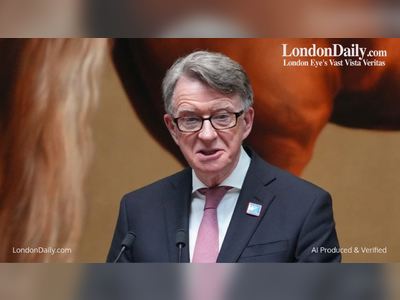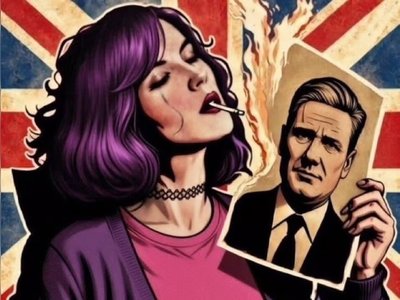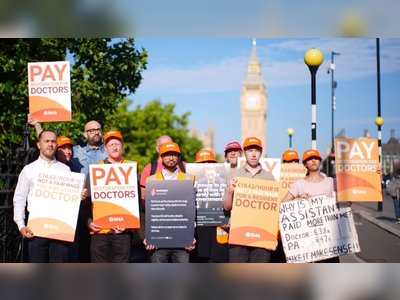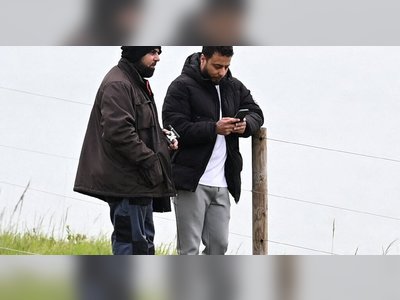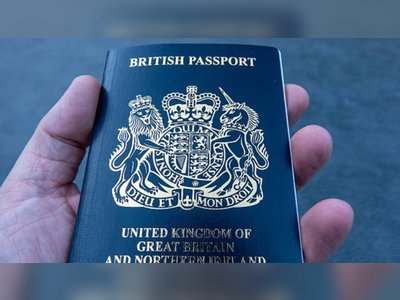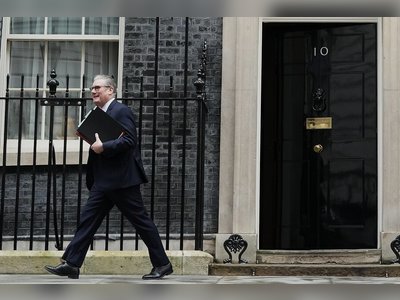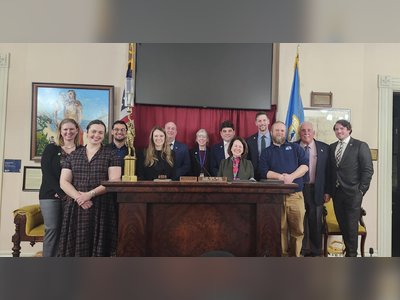
The Monster America Made
More than a year after a fateful night in Kenosha, Wisconsin, Kyle Rittenhouse is crying in front of a jury. He was just a regular, patriotic kid who wanted to be a cop; now he is an icon, a symbol incarnate of a country tearing itself apart at the seams. If the tears had not been enough, if the arguments were not enough, he would have gone to prison for shooting three people and killing two of them instead of going into nursing like his mother. That is not the way the story was supposed to go.
Policing seemed easy enough on the ride-alongs he did as a kid with the local department, and in August 2020, when he was 17, the situation was dire enough — according to all that he was hearing — that reinforcements were necessary. Barely half an hour away, Kenosha and its safe sprawl were under siege; seemingly endless images of upheaval emerged to prove that the small Wisconsin suburb was in distress. It wasn’t like Kyle could do nothing with the world burning. He was the good guy motivated by good intentions who just happened to be pushed into a bad outcome: So what is he supposed to apologize for?
If the violent death he is responsible for represents who he is, then it represents who we are, too.
We are a nation riven by this question, each side aghast at the gall of the other to deny the answer that should so obviously be produced. To many people, there is nothing for Kyle Rittenhouse to feel bad about, no crime that he committed. He was simply doing what should have been done, what the police and politicians were too weak to do, what needs to happen more often for this country to be great. For others, he is a harbinger of unleashed violence, a specter of domestic terrorism, a brutal memory of traumas past and present. For this side of the argument, should Kyle Rittenhouse be liberated into a normal life, it will be an invitation to destruction.And yet, despite all of the attention, despite all of the protest and admonition, Kyle Rittenhouse is an average white boy from an average white family settled in an average white suburb. It is unlikely in anonymity that he would have been called a “bad kid.” From the short 17 years of his life prior to last summer, there’s not much of a track record of antisocial or violent behavior, few extreme posts, and lots of baby-faced enthusiasm. He is a mirror of the American median, and so an uncomfortable reflection on the culture we have cultivated. If the violent death he is responsible for represents who he is, then it represents who we are, too.
We did not merely watch a trial about a boy and a gun but one about the hypocrisy at the core of American mythology. Rittenhouse was young enough to be a child yet accepted by others that evening as old enough to carry a lethal weapon; he was an “isolated incident” in the midst of a coordinated coalition of white men armed on dark streets. We are told that he had no investment in supremacy, but he chose to call a friend rather than paramedics after firing his first shots, and he has been draped with the shield of self-defense for bringing a loaded weapon to protests over a Black man shot in the back. For a nation where atrocity only happens in the passive voice and the past tense, that we cannot deny such unambiguous agency is an existential crisis.
Rittenhouse thought that he was living the story of a good guy with a gun because everything in our society told him as much. This is the truth we have tried to deny, the reality that the trial has brought into sharp relief. He was an ordinary person living an ordinary life with ordinary hobbies and passions, and in a series of ordinary choices — wanting the gun, having his friend purchase it for him, driving to his friend’s house to retrieve it — he did a monstrous thing. And in this, he is simply a new chapter in a long legacy of American monstrosity.
Rittenhouse is the regular Confederate soldier, fighting for hearth and home rather than slavery; the Redeemer in the dark, just “protecting” the safety of white women; the white jury passing judgment for taking Black life; the insurrectionist trying to “stop the steal.” We have tried to isolate, regulate, diminish, and deny these facts of our history and culture to give these ordinary people redemption. We have unmade the patterns of our stories: the domestic violence and misogyny that so often predicts mass murder; the relentless propaganda that urges provocation and domination when individual desire is not enough; the suffusion of white supremacy into a land so deeply and completely that it is viewed as an ideal to strive toward. If no one can see it coming, then no one can be expected to avoid it.
We are left writhing in the friction of a truth: To see someone as human doesn’t mean only giving sympathy to their vulnerabilities but recognizing the cruelties within them. Walking along a path that prioritizes comfort over truth is necessarily a choice, and that choice is necessarily a responsibility. We cannot be horrified by violence we constructed, just as we cannot exculpate those who participate in it. This is the consequence of rationalizing away decades and centuries of good people doing evil things because it was easier than demanding better from ourselves.
There are always excuses for the damage, and these are the same ones trotted out for the feckless actions of a 17-year-old civilian carrying a weapon of war on suburban streets: It was a mob mentality; he was overwhelmed by the moment; he didn’t have a choice. Wrap cruelty in the ordinary and it makes ordinary people cruel. None of us can be guilty if all of us are. We permit others to tumble down the path we pave and speak in somber tones of regret when what has always happened happens anew.
The footage of Rittenhouse walking through the streets of Kenosha and firing a rifle at unarmed people is the product of a modern phenomenon, but it is similar to another artifact of American tradition: the lynching postcard. These photos also show ordinary people in extraordinary circumstances, caught up in frenzies, wrapped anonymously in a mob. They poured in from far and wide on dark nights, unabashed and unafraid, and shared a baptism of blood. They were shopkeepers and librarians and carpenters, judges and officials, fathers and mothers and cousins and friends, churchgoers and choir singers — and, in turning their smiling faces toward the flash of a bulb, monsters.
After they collected their grisly souvenirs, the crowd would disperse back into ordinary life to be ordinary people once again. There were no costs, no courts, no reprimands, no justice — no trials, no juries, no tears on the stand. There was no one to convince with justifications because no one would ask any questions. Send a crime through the mail — walk away with a rifle: This is the purpose of the system, the gift of an ordinary life.
This is what the jury has given Rittenhouse in acquittal: freedom, autonomy, and normalcy. Fear, despair, and death: This is what Black communities have received and are forced to accept once again. There is no documentation that can make society accept a penalty of white livelihood for Black safety. To return to the ordinary, Kyle Rittenhouse needed only to ask.
That’s how the story is supposed to go.
